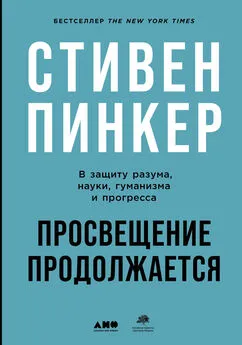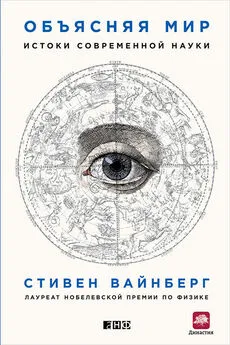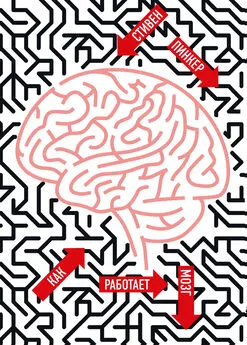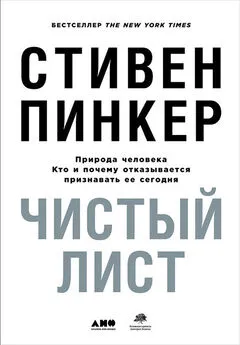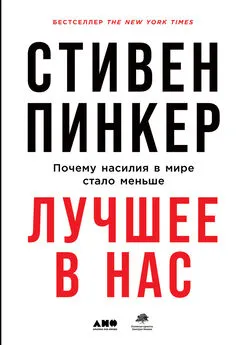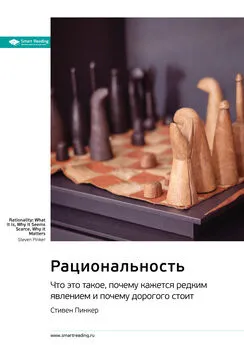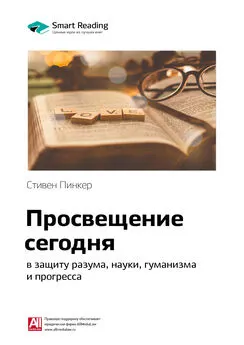Стивен Пинкер - Просвещение продолжается. В защиту разума, науки, гуманизма и прогресса
- Название:Просвещение продолжается. В защиту разума, науки, гуманизма и прогресса
- Автор:
- Жанр:
- Издательство:Альпина нон-фикшн
- Год:2021
- Город:Москва
- ISBN:9785001395362
- Рейтинг:
- Избранное:Добавить в избранное
-
Отзывы:
-
Ваша оценка:
Стивен Пинкер - Просвещение продолжается. В защиту разума, науки, гуманизма и прогресса краткое содержание
Этот прогресс – не случайность и не результат действия внешних сил. Это дар современному миру от деятелей Просвещения, которые первыми додумались, что знания можно использовать во имя процветания всего человечества. Идеи Просвещения – вовсе не наивные мечтания. Наоборот, они сработали – и это неоспоримый факт. Тем не менее именно сейчас эти идеи особенно нуждаются в нашей защите, поскольку противостоят характерным недостаткам человеческой природы – трайбализму, авторитаризму, демонизации чужаков и магическому мышлению, – которые так нравится эксплуатировать современным демагогам. Да, стоящие перед человечеством проблемы огромны, но все они решаемы, если мы, продолжая дело Просвещения, используем для этого разум, доверяем науке и руководствуемся идеалами гуманизма.
Особенности
Более 70 графиков из почти всех областей человеческой жизни.
Для кого
Для поклонников Стивена Пинкера. Для всех, кто интересуется природой человека. Для тех, кто верит в прогресс, и для тех, кто в нем сомневается.
Просвещение продолжается. В защиту разума, науки, гуманизма и прогресса - читать онлайн бесплатно ознакомительный отрывок
Интервал:
Закладка:
Gallup. 2016. Death penalty. http://www.gallup.com/poll/1606/death-penalty.aspx.
Galor, O., & Moav, O. 2007. The neolithic origins of contemporary variations in life expectancy. http://dx.doi.org/10.2139/ssrn.1012650.
Galtung, J., & Ruge, M. H. 1965. The structure of foreign news. Journal of Peace Research, 2, 64–91.
Gardner, D. 2008. Risk: The science and politics of fear . London: Virgin Books.
Gardner, D. 2010. Future babble: Why expert predictions fail – and why we believe them anyway . New York: Dutton.
Garrard, G. 2006. Counter nlightenments: From the eighteenth century to the present . New York: Routledge.
Gash, T. 2016. Criminal: The hidden truths about why people do bad things . London: Allen Lane.
Gat, A. 2015. Proving communal warfare among hunter atherers: The quasi ousseauan error. Evolutionary Anthropology, 24, 111–26.
Gauchat, G. 2012. Politicization of science in the public sphere: A study of public trust in the United States, 1974 to 2010. American Sociological Review, 77, 167–87.
Gell-Mann, M. 1994. The quark and the jaguar: Adventures in the simple and the complex. New York: W. H. Freeman.
Gentzkow, M., & Shapiro, J. M. 2010. What drives media slant? Evidence from U.S. daily newspapers. Econometrica, 78, 35–71.
Gervais, W. M., & Najle, M. B. 2017. How many atheists are there? Social Psychological and Personality Science , 10.1177/1948550617707015.
Ghitza, Y., & Gelman, A. 2014. The Great Society, Reagan’s revolution, and generations of presidential voting. http://www.stat.columbia.edu/~gelman/research/unpublished/cohort_voting_2014_0605.pdf.
Gigerenzer, G. 1991. How to make cognitive illusions disappear: Beyond heuristics and biases. European Review of Social Psychology, 2, 83–115.
Gigerenzer, G. 2015. Simply rational: Decision making in the real world . New York: Oxford University Press.
Gigerenzer, G. 2016. Fear of dread risks. Edge . https://www.edge.org/response-detail/26645.
Gigerenzer, G., & Hoffrage, U. 1995. How to improve Bayesian reasoning without instruction: Frequency formats. Psychological Review, 102, 684–704.
Gilbert, D. T. 2006. Stumbling on happiness . New York: Knopf.
Giles, J. 2005. Internet encyclopaedias go head to head. Nature, 438, 900–901.
Glaeser, E. L. 2011. Triumph of the city: How our greatest invention makes us richer, smarter, greener, health-ier, and happier. New York: Penguin.
Glaeser, E. L. 2014. Secular joblessness . London: Centre for Economic Policy Research.
Glaeser, E. L., Ponzetto, G. A. M., & Shleifer, A. 2007. Why does democracy need education? Journal of Economic Growth, 12, 271–303.
Glaeser, E. L., La Porta, R., Lopez-de-Silanes, F., & Shleifer, A. (2004). Do institutions cause growth? Journal of Economic Growth, 9, 271–303.
Gleditsch, N. P. 2008. The liberal moment fifteen years on. International Studies Quarterly, 52, 691–712.
Gleditsch, N. P., & Rudolfsen, I. 2016. Are Muslim countries more prone to violence? Paper presented at the 57th Annual Convention of the International Studies Association, Atlanta.
Gleditsch, N. P., Wallensteen, P., Eriksson, M., Sollenberg, M., & Strand, H. 2002. Armed conflict, 1946–2001: A new dataset. Journal of Peace Research, 39, 615–37.
Gleick, J. 2011. The information: A history, a theory, a flood . New York: Pantheon.
Glendon, M. A. 1998. Knowing the Universal Declaration of Human Rights. Notre Dame Law Review, 73, 1153–90.
Glendon, M. A. 1999. Foundations of human rights: The unfinished business. American Journal of Jurisprudence, 44, 1–14.
Glendon, M. A. 2001. A world made new: Eleanor Roosevelt and the Universal Declaration of Human Rights . New York: Random House.
Global Zero Commission. 2010. Global Zero action plan. http://static.globalzero.org/files/docs/GZAP6.0.pdf.
Global Zero Commission. 2016. US adoption of no rst se and its effects on nuclear proliferation by allies. http://www.globalzero.org/files/nfually_proliferation.pdf.
Glover, J. 1998. Eugenics: Some lessons from the Nazi experience. In J. R. Harris & S. Holm, eds., The future of human reproduction: Ethics, choice, and regulation . New York: Oxford University Press.
Glover, J. 1999. Humanity: A moral history of the twentieth century . London: Jonathan Cape.
Goertz, G., Diehl, P. F., & Balas, A. 2016. The puzzle of peace: The evolution of peace in the international system . New York: Oxford University Press.
Goklany, I. M. 2007. The improving state of the world: Why we’re living longer, healthier, more comfortable lives on a cleaner planet . Washington: Cato Institute.
Goldin, C., & Katz, L. F. 2010. The race between education and technology . Cambridge, MA: Harvard University Press.
Goldstein, J. S. 2011. Winning the war on war: The surprising decline in armed conflict worldwide . New York: Penguin.
Goldstein, J. S. 2015. Is the current refugee crisis the worst since World War II? (Unpublished manu-script.) http://www.joshuagoldstein.com/.
Goldstein, R. N. 1976. Reduction, realism, and the mind. Ph.D. dissertation, Princeton University.
Goldstein, R. N. 2006. Betraying Spinoza: The renegade Jew who gave us modernity . New York: Nextbook/Schocken.
Goldstein, R. N. 2010. Thirty ix arguments for the existence of God: A work of fiction . New York: Pantheon.
Goldstein, R. N. 2013. Plato at the Googleplex: Why philosophy won’t go away . New York: Pantheon.
Gómez, J. M., Verdú, M., González egías, A., & Méndez, M. 2016. The phylogenetic roots of human lethal violence. Nature, 538, 233–37.
Gordon, R. J. 2014. The turtle’s progress: Secular stagnation meets the headwinds. In C. Teulings & R. Baldwin, eds., Secular stagnation: Facts, causes and cures . London: Centre for Economic Policy Research.
Gordon, R. J. 2016. The rise and fall of American growth . Princeton, NJ: Princeton University Press.
Gottfredson, L. S. 1997. Why g matters: The complexity of everyday life. Intelligence, 24, 79–132.
Gottlieb, A. 2016. The dream of enlightenment: The rise of modern philosophy . New York: Norton.
Gottschall, J. 2012. The storytelling animal: How stories make us human . Boston: Houghton Mifflin Harcourt.
Gottschall, J., & Wilson, D. S., eds. 2005. The literary animal: Evolution and the nature of narrative . Evanston, IL: Northwestern University Press.
Graham, P. 2016. The refragmentation. Paul Graham Blog . http://www.paulgraham.com/re.html.
Grayling, A. C. 2007. Toward the light of liberty: The struggles for freedom and rights that made the modern Western world . New York: Walker.
Grayling, A. C. 2013. The God argument: The case against religion and for humanism . London: Bloomsbury.
Greene, J. 2013. Moral tribes: Emotion, reason, and the gap between us and them . New York: Penguin.
Greenstein, S., & Zhu, F. 2014. Do experts or collective intelligence write with more bias? Evidence from Encyclopædia Britannica and Wikipedia. Harvard Business School Working Paper, 15-23 .
Greenwood, J., Seshadri, A., & Yorukoglu, M. 2005. Engines of liberation. Review of Economic Studies, 72, 109–33.
Gregg, B. 2003. Thick moralities, thin politics: Social integration across communities of belief . Durham, NC: Duke University Press.
Gross, N., & Simmons, S. 2014. The social and political views of American college and university professors. In N. Gross & S. Simmons, eds., Professors and their politics . Baltimore: Johns Hopkins University Press.
Guerrero Velasco, R. G. 2015. An antidote to murder. Scientific American, 46–50.
Gunsalus, C. K., Bruner, E. M., Burbules, N., Dash, L. D., Finkin, M., et al. 2006. Improving the system for protecting human subjects: Counteracting IRB mission creep (No. LE06-16). University of Illinois, Urbana. https://papers.ssrn.com/sol3/papers2.cfm?abstractid=902995.
Gurr, T. R. 1981. Historical trends in violent crime: A critical review of the evidence (vol. 3). Chicago: University of Chicago Press.
Gyldensted, C. 2015. From mirrors to movers: Five elements of positive psychology in constructive journalism. GGroup Publishers.
Hafer, R. W. 2017. New estimates on the relationship between IQ, economic growth and welfare. Intelligence, 61, 92–101.
Hahn, R., Bilukha, O., Crosby, A., Fullilove, M. T., Liberman, A., et al. 2005. Firearms laws and the reduction of violence: A systematic review. American Journal of Preventive Medicine, 28, 40–71.
Haidt, J. 2006. The happiness hypothesis: Finding modern truth in ancient wisdom . New York: Basic Books.
Haidt, J. 2012. The righteous mind: Why good people are divided by politics and religion . New York: Pantheon.
Halpern, D., & Mason, D. 2015. Radical incrementalism. Evaluation, 21, 143–49.
Hammel, A. 2010. Ending the death penalty: The European experience in global perspective . London: Palgrave Macmillan.
Hammond, S. 2017. The future of liberalism and the politicization of every thing. Niskanen Center Blog . https://niskanencenter.org/blog/future-liberalism-politicization-everything/.
Hampton, K., Goulet, L. S., Rainie, L., & Purcell, K. 2011. Social networking sites and our lives. Washington: Pew Research Center.
Hampton, K., Rainie, L., Lu, W., Shin, I., & Purcell, K. 2015. Social media and the cost of caring . Washington: Pew Research Center.
Hanson, R., & Yudkowsky, E. 2008. The Hanson udkowsky AI oom debate ebook. Machine Intelligence Research Institute, Berkeley.
Harff, B. 2003. No lessons learned from the Holocaust? Assessing the risks of genocide and political mass murder since 1955. American Political Science Review, 97, 57–73.
Harff, B. 2005. Assessing risks of genocide and politicide. In M. G. Marshall & T. R. Gurr, eds., Peace and conflict 2005: A global survey of armed conflicts, self etermination movements, and democracy . College Park, MD: Center for International Development and Conflict Management, University of Maryland.
Hargraves, R. 2012. Thorium: Energy cheaper than coal . North Charleston, SC: CreateSpace.
Hasegawa, T. 2006. Racing the enemy: Stalin, Truman, and the surrender of Japan . Cambridge, MA: Harvard University Press.
Hasell, J., & Roser, M. 2017. Famines. Our World in Data . https://ourworldindata.org/famines/.
Haskins, R., & Margolis, G. 2014. Show me the evidence: Obama’s fight for rigor and results in social policy . Washington: Brookings Institution.
Haslam, N. 2016. Concept creep: Psychology’s expanding concepts of harm and pathology. Psychological Inquiry, 27, 1–17.
Hassett, K. A., & Mathur, A. 2012. A new measure of consumption inequality . Washington: American Enterprise Institute.
Hastorf, A. H., & Cantril, H. 1954. They saw a game; a case study. Journal of Abnormal and Social Psychology, 49, 129–34.
Hathaway, O., & Shapiro, S. 2017. The internationalists: How a radical plan to outlaw war remade our world . New York: Simon & Schuster.
Haybron, D. M. 2013. Happiness: A very short introduction . New York: Oxford University Press.
Читать дальшеИнтервал:
Закладка:
